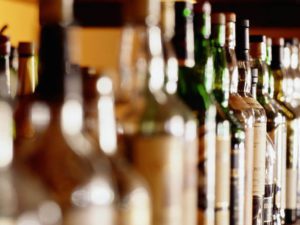
Bayadera Group, a large alcohol producing holding in the Ukrainian market, this year seeks to invest UAH 80-100 million in planting new vineyards and modernization of plants. “In 2019, we are planning to invest UAH 80-100 million, first of all, in vineyards and modernization of plants. This will improve the quality, reduce the cost of production and increase efficiency,” Director General of Bayadera Group Anatoliy Korchynsky said in an interview with Interfax-Ukraine.
In particular, in 2019 the group intends to plant about 200 hectares in Mykolaiv region.
According to the director general, Bayadera Group is considering the transition from the wine cork to the screw cap.
“Considering the global problem with cork, everyone will come to this in the next few years. In Europe this is already a reality, but in Ukraine the buyer still does not understand it. However, we are already preparing for the changeover of production,” Korchynsky said.
The group also conducts several experiments in terms of sales performance.
“If they are successful, this will also require certain investments,” Korchynsky said.
In 2018, Bayadera Group invested about UAH 80 million: some UAH 35 million in the agricultural sector, UAH 20 million – in plants, and near UAH 25 million – in distribution. In general, the alcohol holding has several areas of investment: agriculture, modernization and renewal of production facilities, as well as distribution.
Bayadera Group was established in 1991. Its owners are Natalia Bondareva and Sviatoslav Nechytailo. The company owns such assets in the alcohol industry as distribution companies and alcohol production facilities in Ukraine and Belarus. It produces wine, vermouth and cognac and is the exclusive importer of international alcohol brands in Ukraine.
The main trademarks are Persha Gildiya, Kozatska Rada, Hlibny Dar, Koblevo, Marengo, and others.

Roshen Corporation will allocate UAH 160.4 million for the second stage of reconstruction of Kyiv Confectionary Factory Roshen, PrJSC Kyiv Confectionery Factory Roshen said in the information disclosure system of the National Commission on Securities and the Stock Market. According to the company, the funds will be used for landscaping the territory with the arrangement of a fountain in the territory of the confectionery factory at 1 Nauky Avenue in Holosiyivsky district of the capital. The general contractor of the work is European Construction Technologies LLC.
As reported, Roshen in 2018 announced the investment of UAH 90 million in the creation of a public space in the territory of the factory. The provisional name of the reconstruction project is Roshen Plaza.
According to the company, the factory does not cease to exist, but its capacity is reduced. Part of the production premises will remain in the factory’s territory, the company’s office and public facilities will be located in one of the buildings.
Roshen Corporation is one of the top 30 largest confectionery manufacturers in the world.
The Roshen network in Ukraine includes 50 stores in five regions of Ukraine. The first one opened in Kyiv in 2009. The corporation annually opens five or six stores.

HarvEast intends to increase the irrigated area by 500-800 hectares next year and plant walnuts on an area of about 30-40 hectares.
“We will continue to invest in irrigation, we are pleased with the results on the 1,100 hectares that are now under irrigation. Next year we will add 500 or 800 hectares. In addition, we continue to develop walnut growing: this year we’ve planted 30 hectares, we have a total of 90 hectares, and we plan to plant 30-40 hectares annually,” HarvEast Director General Dmytro Skorniakov told Interfax-Ukraine.
According to him, the company does not set a goal to increase its land bank, but if there is an interesting offer, it is possible.
“In general, this year it is probably the worst year in the last 20-30 years in southern Ukraine. For us, respectively, it is the worst year in the entire history of the company in terms of harvest. We have already harvested the whole crop, but there are no final data yet,” he said.
HarvEast is an agricultural holding, whose core business is plant growing (growing wheat, sunflower, barley, etc.) and dairy farming. It cultivates about 97,000 hectares of land.

The project of modernization of the Kharkiv Tractor Plant, investment in which could be around $2-3 billion, foresees the creation of a multifunctional ecosystem for business on its basis, which will include a potent industrial park, a complex with research, technological and technical base for implementation of innovative projects (a technological park) and other facilities, including logistic, training and research centers, the plant has reported on its website. “We are currently planning a big project for the reconstruction of the Kharkiv Tractor Plant. I think this is an investment of about $2-3 billion. We started yesterday and we will continue several years. It will be very interesting from the point of view of professional use. I always like projects that keep me on my toes,” the owner of the DCH group, which includes the Kharkiv Tractor Plant, Oleksandr Yaroslavsky said.
The project will, in particular, attract students and scientists from Kharkiv. Yaroslavsky said that the medium-term program for the development of the enterprise currently being implemented provides for an investment of DCH in the amount of about UAH 230 million. “We have focused mainly on the modernization of tractors. Almost more than 200 innovations in the model were made. The model has changed in quality both externally and internally, therefore the tractor has become more competitive,” Yaroslavsky said.
He said that about 800 new tractors would be off the line this year, approximately the same volumes are planned for next year: the plant does not work “for storing in a warehouse,” but manufactures products in accordance with the order portfolio. “We end this year and make the same plans, at least. Every year, every time, they create difficulties and problems for me with the Kharkiv Tractor Plant. Previously, it was running hurdles, now swimming in a pool without water. Tit is the more interesting, the more fun. I am responsible for the team. The team should be with a salary, and I will find options for a solution,” the businessman said.
Yaroslavsky recalled that the main market for the plant is Ukraine, and foreign markets are important to a lesser extent. “Taking into account that the markets have been lost, we have to restore. However, this process will take a certain amount of time. We are used to work. The company is interesting, the Kharkiv Tractor Plant is the leader of Ukrainian engineering and will not be left without attention,” Yaroslavsky said.
According to the information on the company’s website, earlier, Kharkiv Tractor Plant Director Andriy Koval reported that this year the plant increased sales of products in Ukraine by 40%.

The Kuwait Fund for Arab Economic Development is ready to provide Ukraine with a loan for investment projects in the field of cancer treatment, Ukraine’s Ministry of Health said on its official website. According to its data, the issues of cooperation were discussed at the fourth meeting of the Ukrainian-Kuwaiti intergovernmental commission on economic, technical and trade cooperation. “In particular, the parties discussed investment projects for cancer treatment and bone marrow transplantation. It’s not a secret to anyone that these issues are the most painful for our healthcare system. For example, this year about UAH 580 million has been spent on the Treatment Abroad program from the national budget. That is why we need investment projects that would develop transplantation in Ukraine,” Deputy Health Minister Pavlo Kovtoniuk said.
During the meeting, Health Minister of Kuwait Basel Hamoud Al-Sabah and Kovtoniuk discussed the progress of healthcare reforms in Ukraine.
“The Kuwaiti side is very interested in the changes we are introducing, because in the near future we plan to significantly reform the financing system of this industry. The Deputy Health Minister of Kuwait noted that the system should be as effective as possible regardless of how much money the country allocates for medicine. That is why he considers primary development to be the priority and is interested in our experience,” Kovtoniuk said.